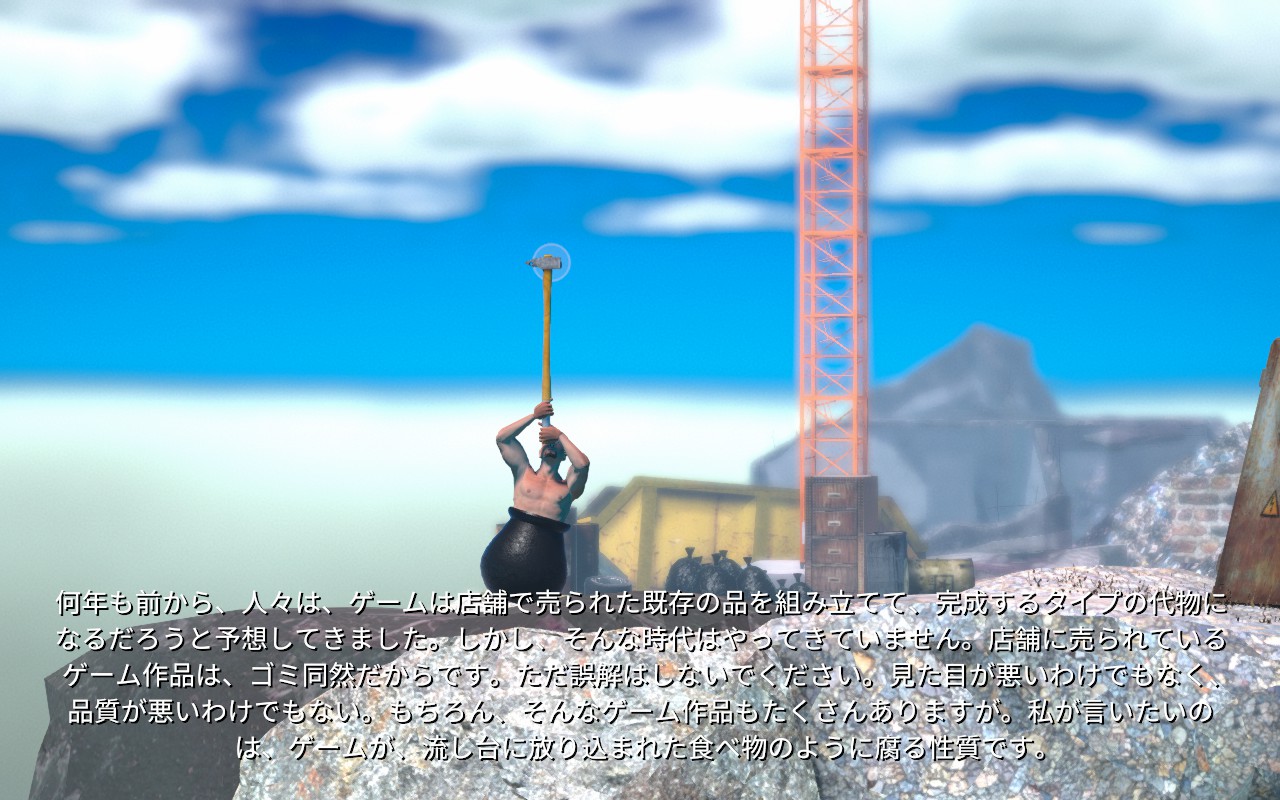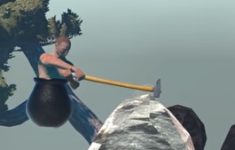

įoddy also expressed an interest in games history, particularly the English and European games not widely known in the United States. Foddy created many other small games, including a 16-player chess deathmatch ( Bennett Foddy's Speed Chess, 2013) and a maze of optical illusions ( Zebra, 2016). A colleague highlighted Foddy's expertise on "game feel": his use of in-game physics to create tension. Īs New York University expanded its Game Center into Brooklyn in late 2013, Foddy taught his first studio class in game design. GIRP is designed for players to set their own goals, such as their own maximum height, or once they reach the top, their own fastest score, rather than publicly comparing against an online leaderboard. Like QWOP, both titles have awkward controls that push the player to embody the avatar once the controls are internalised. Wired described the free game as "masochistically difficult", with the effect of making the player's keyboard similar to the physical skill game of Twister, in which the player grips the keyboard like the avatar grips the rock face. His next game, GIRP (2011), is a rock climbing simulator in which the player presses keyboard keys assigned to rocks on a wall to flex and ascend its surface.

įoddy receiving the 2018 GDC Independent Games Festival Nuovo Award

Though several of his games prominently feature rhythm, it was not a consideration in his design. He also wanted to create the "immediacy" of direct-to-TV video game appliances, which lacked the software load times characteristic of console games. Foddy sought to recreate the vexing difficulty of games from his youth and the range of emotions they pique. Foddy's childhood gaming experiences became touchstones for the themes he would develop in QWOP and which would recur throughout his next titles. In content, QWOP is based on the 1980s arcade game Track & Field. Foddy later came to describe his game design aspirations as "literary", building atop a lineage of predecessors. For a time, he also worked on ascertaining the existence of game addiction and considered the intrinsic values of in-game rewards. įoddy did not intend for QWOP to connect with his philosophy work, but he saw similarities between his use of reward– punishment cycles and the motivations behind addiction. As his postdoctoral work ended, Foddy's game design career outshined his philosophy career with the help of QWOP, but before he came to choose the former, Foddy served as the deputy director of Oxford University's Institute for Science and Ethics. Kill Screen included the title in its 2011 Museum of Modern Art event and it appeared on the American television show The Office in 2012. QWOP enjoyed attention uncommon for indie games of its size. It was a modest success at release, but became an Internet sensation and one of his most recognisable titles following its popularisation on burgeoning websites Stumbleupon, Reddit, and YouTube in late 2010. Meanwhile, he developed another simple game, QWOP, for release in 2008, in which the player uses the four keyboard keys of the game's title to control the muscles of an Olympic sprinter. Foddy wrote philosophy papers and lectured on topics of drug addiction. He moved to the United States as a postdoctoral researcher at Princeton University from 2007 to 2010. QWOP 's title refers to the four keyboard keys used to move the muscles of the sprinter avatar Its positive press encouraged Foddy to continue the pursuit, but Foddy hid this hobby from his colleagues to avoid the philosophy field's stigma against philosophers who do not wholly dedicate themselves to their philosophy work. The game mainly relies on reflexes and a small set of buttons. In his first Flash game, Too Many Ninjas (2007), players defended their immobile ninja avatar against oncoming ninjas. He taught himself to program and design games in 2006 from online tutorials while working on his philosophy dissertation.

Career įoddy has said that his best design work happened while he was procrastinating from other work. He also said that the touring life of waiting and partying did not fit his personality. Foddy enrolled in a doctoral degree in philosophy in late 2003 at the University of Melbourne with an interest in cognitive science and human addiction and left Cut Copy in 2004. When his duties to the band conflicted with his philosophy studies, he chose the latter. Foddy played bass, despite having little experience. Whitford was the sole writer for the first album but reached out to friends to expand the band. He studied philosophy in college and was working as a research assistant in the field when his childhood friend, Dan Whitford, started the Australian electronic group Cut Copy.


 0 kommentar(er)
0 kommentar(er)
